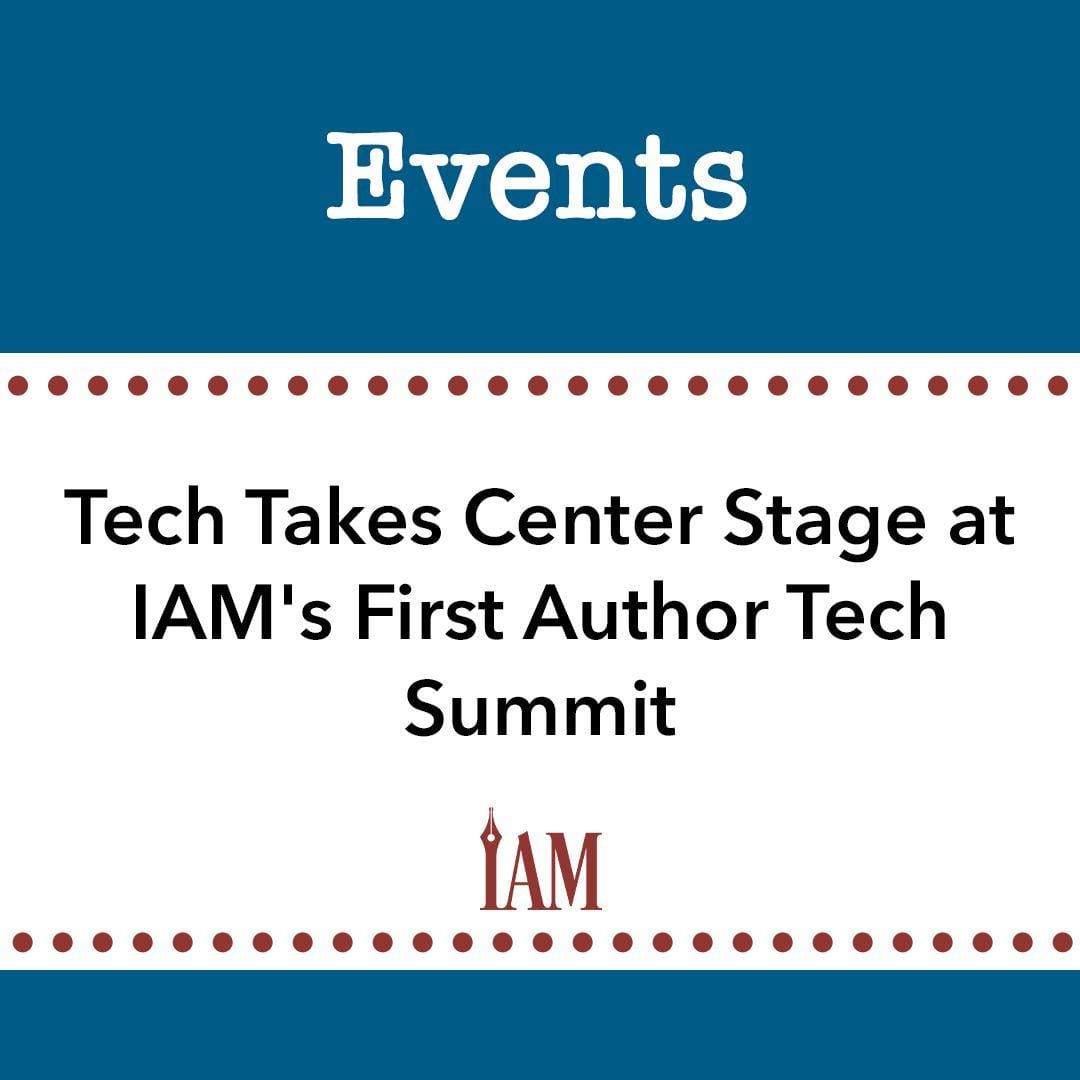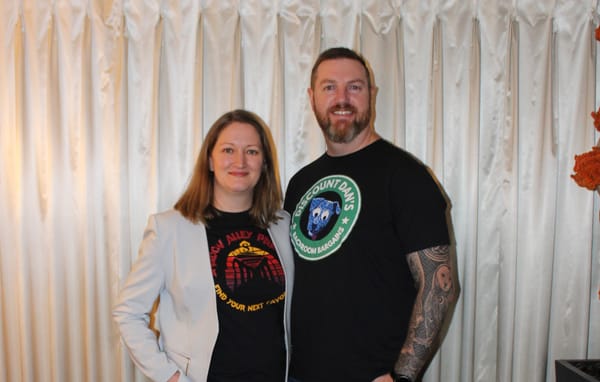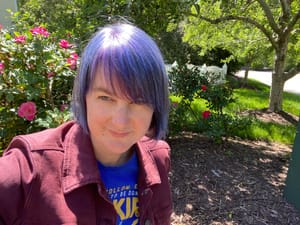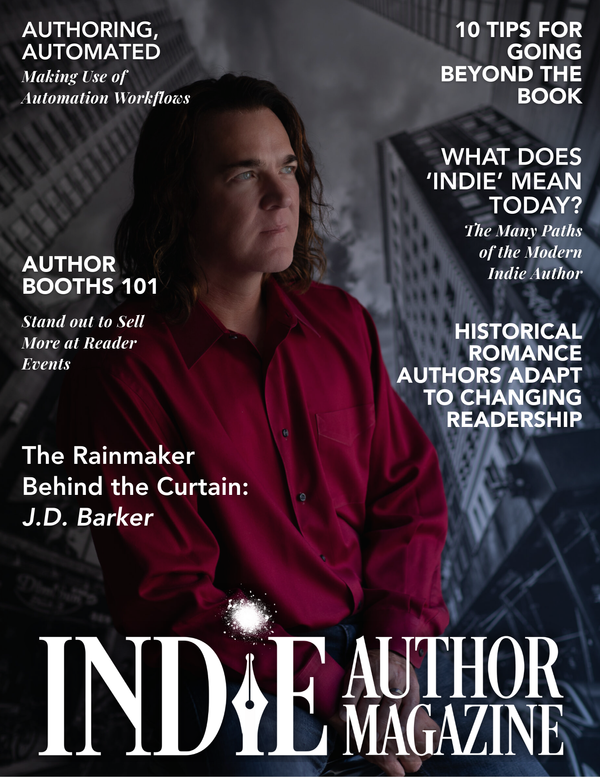Day One: Reader Engagement and Story Development
Day one of the summit launched with sessions from four different apps that help authors build their world, write their manuscripts, format them, and find new readers.
World Anvil
Janet Forbes, CEO and co-founder of World Anvil, took participants on a tour of the world building and novel writing software, which was created by her husband for her to finish her “unfinishable” novel. Originally aimed at gamers and fantasy writers for its ability to create maps and fleshed-out worlds, World Anvil also presented a second session that showed practical applications for authors using its timeline builder, character templates, and manuscript writing tool.
Reedsy
Reedsy is best known for the online directory of editing, design, and other professionals, but in this session, Reedsy’s Ricardo Fayet introduced the software’s writing and formatting tool called Reedsy Book Editor, highlighting the features of the online tool and demonstrating one key feature sure to be popular: collaboration, and how co-authors and editors can share a document without overriding one another’s work.
Kickstarter
Kickstarter has garnered a lot of attention in recent months after Brandon Sanderson’s record-breaking campaign raised the most money ever by any user on the platform. Two Kickstarter sessions led participants through the basics of the app, including ways to get started with Kickstarter led by the company’s director of publishing and comics outreach, Oriana Leckert, and a deeper dive into building a sales page campaign from Russell Nohelty and Monica Leonelle, bestselling co-authors of the indie author guidebook Get Your Book Selling on Kickstarter.
Plottr
Plottr is a visual outline and story bible tool for writers. In this session, Ryan Zee, co-founder and head of marketing, and Troy Lambert, education lead for the program, talked with Author Tech Summit Director of Operations Amy Holiday about how discovery writers—or those who aren’t plotters by nature—can utilize the program. Zee and Lambert delved into four concepts, including post-plotting, revising first drafts, managing story and series bibles, and tracking tent-pole events.
Day Two: Content Management
Day two focused on ways for authors to reach readers in new ways using websites, podcasts, and text-to-speech and translation tools to generate marketing materials.
Google Rich Snippets
Rich snippets are panels of information displayed in search results, offering audiences expanded information about the book, author, links to libraries, and links to buy. This session described how indie authors can use their website and other resources to alert Google to display this information using schemas, machine-readable formatting standard to most websites.
How to Write Blog Posts that Update Elsewhere
Using the power of RSS feeds, this session walked participants through the steps of writing a blog post and formatting its machine-readable template with links, images, and excerpts so that_bytearray can be used to populate newsletters, author profile pages, search results, push notifications, and social media posts.
AI Marketing Videos
Artificial intelligence (AI) tools for text-to-speech have become sophisticated enough for use in everyday marketing efforts. This session presented a use-case of creating sound files with two characters’ dialogue “spoken” using AI and combined into a short-form video for use on platforms like TikTok or Instagram. (View the sample finished video)
Automatic Amazon Author Page and Goodreads Profile Updates
Building on the “Blog Once and Update Everywhere” session, this presentation delved deeper into the specifics of how to automate updates to the author’s profiles on Amazon and Goodreads using an RSS feed from each of the major website platforms.
Anchor.FM
Anchor.FM is a podcasting tool that serves as a central point for creating, editing, and syndicating podcasts. This session explored the possibilities of using Anchor.FM in two ways. The first described the steps for indie authors wanting to publish audio versions of serial fiction with ads or listener support. The second showed authors how to upload AI-generated sound files to produce a podcast and syndicate it to Google Play, Amazon Music, Apple Podcasts, and other podcast download sites.
A Pro Editor’s Tips for Recording Your Own Audiobook
Not every author can afford to hire a narrator, but with the right setup and know-how, almost any author can produce a quality audio edition of their work on their own. Professional audiobook editor Jim Wilbourne walked attendees through setting up an advanced sound file editor and detailed what he does to ensure a raw recorded sound file has all the technical aspects required to achieve a polished result.
Day Three: Email Service Providers
Each of the email service providers profiled on day three—Sendy, Sendinblue, Mailchimp, MailPoet, MailerLite, and SendFox—was selected for... **[JSON TRUNCATION]**












